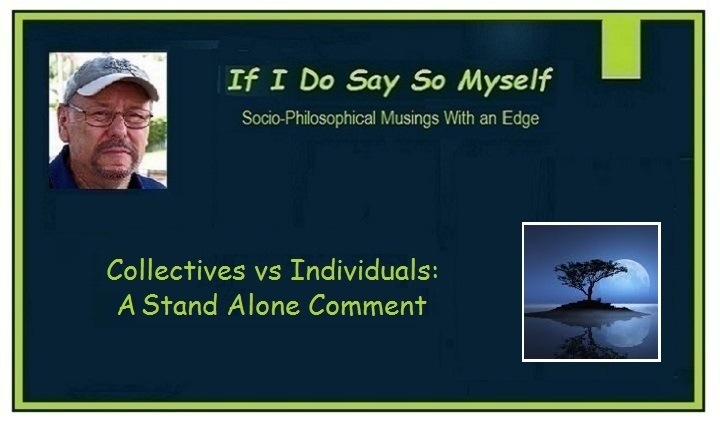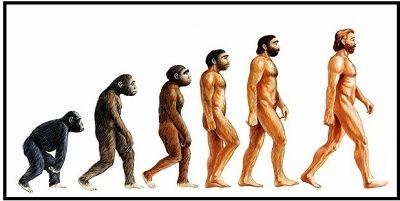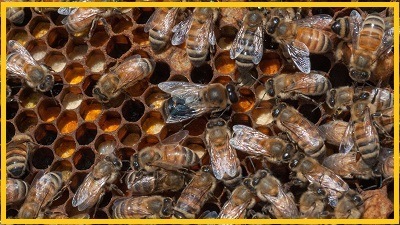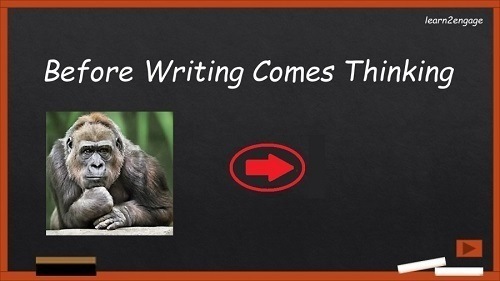Collectives vs Individuals: A Stand Alone Comment

Preface: This post began in my mind's eye as a comment on an article I read recently, but grew in the writing to a length that made it impractical to post in the comment thread of that article.
So, I borrowed a concept originated by Sara Jacobovici, namely, that of a "stand alone comment". I believe Sara's introduction of this social media device is truly brilliant and should be acknowledged as such. Thank you, Sara.
"We love to move freely, but not on the expense of our survival and abilities to build strong human communities..."
Ali Anani, PhD in Against Authenticity and Free Movement, on beBee, April, 2017

In his eloquent and deep-thinking piece, Against Authenticity and Free Movement, Dr. Ali Anani voyages to where few men have gone before. In doing so, he raises a question well worth contemplating, but also likely to stir controversy, given the current state of society and world politics. And I, for one, sincerely appreciate his fortitude in setting off to explore this path of (self?) discovery.
Nevertheless, I have to say I strongly disagree both with several of Ali's fundamental assumptions and with his (implied?) conclusion ― here's why ...
Dr. Anani assumes that the ultimate objective of a living "community" is survival.
He couples that assumption with the observation that some organisms (in his example bacteria) become more resistant to destruction when they form into what are effectively organic cooperatives ― in the case of bacteria, into biofilms.
Dr.Anani, who often explores concepts, theories, and systems through metaphors, provides us with a fascinating overview of some research on bacteria and biofilms. He then goes on to draw a comparison between bacterial collectives (biofilms) and human collectives (communities).
Finally, Dr. Anani concludes, at least by implication, that the survival potential of human communities is significantly enhanced when the members of such communities forego a measure of individual freedom (and identity?) in the service of strengthening resistance to destructive outside forces.
" What is truly amazing the understanding of bacteria to the benefits of forming a biofilm. The community of bacteria forming a biofilm is more stress resistant than any individual bacterium. This film is more resistant to ultraviolet light and is far more resistant to antibiotics."
Ali Anani,PhD in Against Authenticity and Free Movement, on beBee, April, 2017
Which is to say that strong community organization yields synergistic strength that is more than simply the sum total of the individual strengths of its members.
And which might be true, but which, I submit, misses a critical point in this particular context.

The history of humanity is one of the constant evolutionary development (however you may define "evolution") of the individual and the valuing of the individual and his or her innate right to life and well-being.
This has been true right throughout recorded history, from the earliest introduction of the concept of law in ancient Egypt through Greco-Roman times, the early Judaic-Christian and Muslim era, the cultural developments in Eastern Asia, the European Middle Ages and the Renaissance, right through to the modern world.
The march has been inexorably toward placing increased value on the individual and his or her place in the phalanx of humanity.
Admittedly, this trait is in distinct contrast to the traits possessed by the enduring organic collectives of the world, whether they are composed of bacteria or insects...
Indeed, if one asks which group of organisms dominates the Earth in sheer numbers and is the most resistance to destruction, the answer has to be insects.
And this could lead (or mislead) some thinkers to look to the social structures of insects as a superior model for improving human social groups (communities and societies).
For instance, colonizing insects such as Honey Bees are often taken as a paradigm of collectives. In Honey Bee colonies, there is a single queen, a relatively small coterie of drones, and a vast mass of workers. Only the queen is necessary as an individual to the survival of the colony, while the drones have some importance in fertilization, and the worker bees have very little individual significance for the colony. Indeed, the workers and even the drones. to some extent, are interchangeable and readily sacrificed to the survival of the collective. ( https://agdev.anr.udel.edu/maarec/honey-bee-biology/the-colony-and-its-organization/)
There is no doubt that, In some respects, this makes bee colonies (collectives) stronger and more durable than human communities when it comes to long-term survival.
However, I suggest we should in our thinking guard against being mesmerized and thereby misled by the use of the metaphor... for there are several aspects of the social structure of bee colonies that few, if any of us would really want to accept.

In his article, Dr. Anani tells us that "The weak individual bacterium emerges as very strong in a community." But as I see it, this is not exactly correct.
The weak individual is not made stronger, as an individual per se, by the collective ― whether a bee colony or a bacterial biofilm is involved. It is only that individual's probability of survival which is made greater by membership in the collective.
Moreover, the collective doesn't give a gnat's ass about any of it's "lesser" members, and it will sacrifice as many as necessary of those lesser members in suicidal defense of the collective, quickly and entirely without remorse. Witness, the behavior of colonies of Africanized Honey Bees, also known as "killer bees", which are individually not as strong as North American honey bees, but which attack in such huge numbers and with such suicidal frenzy that many of their victims are actually suffocated, not stung to death.
Thus, it might initially be attractive for some to believe that, as part of a collective, an individual can achieve things great that might not be achievable outside the collective. But, again, that is to misunderstand or at least gloss over the true nature of collectives.
In strong collectives, only the interest of the collective, driven by the elite or elites of the colony (or by some dumb and blind innate algorithm), has any effect upon the response generated to danger or the direction the collective takes in terms of its development.
Understanding the true nature of collectives requires first understanding the concept of a "superorganism"...
Over the last several decades, biologists, zoologists, and other scientists have begun to conceptualize collectives such as bee colonies as what they call "superorganisms".
More and more scientists have started to view insect collectives as composed of many individual members, but acting in and reacting to their environment as a single large organism.
To my mind, the most appropriate metaphor ― or more accurately, the best simile ― for such "superorganisms" is none other than... the human individual.

Viewing the human individual in this way ― with the brain/mind being compared to the "queen" in a bee colony, various critical organs to "drones", and the mass of body cells to workers ― makes the most sense to me in this context. The metaphor fits very closely, right down to the fact that the human body has the innate ability to sacrifice body cells in defense against attack by bacteria, viruses, and other organisms, both micro and macro.
If you have a predilection for exploring metaphors, framing the comparison in this way yields some insight into why there is a naturally oppositional relationship between a human individual and a social collective. The precise nature of that opposition is beyond the scope of this discussion, and it will have to be explored at a later time and date.
Suffice it now to say that each of us is already a collective. This does not, of course, preclude us from banding together to cooperate and collaborate in the achievement of common objectives and goals.
At this point, I am satisfied simply to suggest to you this alternate way of looking at organic collectives ― one that does not make the mistake of dismissing out of hand the primacy of the individual in human society.
As I see it, history demonstrates that to do so leads to some form of elitism or, worse, totalitarianism, at both the right and left ends of the political spectrum. It also leads not to an improvement, but to a general degradation of social viability.
To submerge human individuality into a collective modeled on natural non-human social and faux-social systems would inevitably take the human out of "humanity." ― Phil Friedman
Postscript: This is not a didactic, but rather, as I mentioned earlier, a reflection stimulated by Dr. Ali Anani's recent article. I also recommend to you several essays that touch on social organization by Dr. Milos Djukic, with whom I've discussed and argued these issues during the years since we first met online in the group Writers 4 Writers on LinkedIn.
Your comments and criticisms are both invited and welcomed, as are those of Dr. Anani. For this is about conversation and the exploration of ideas about collectives versus individuals. So, please feel free to join in, having read Dr. Ali's article and this one. Cheers! ― PLF
Author's Notes: If you found this post interesting and worthwhile and would like to receive notifications of my writings on a regular basis, click the [FOLLOW] button on my beBee profile. Better yet, elect there to follow my blog by email. As a writer-friend of mine says, you can always change your mind later.
Should you be curious about some of my other writings on social media, you're invited to take a look at the following:
"BeBee vs beBee: Differentiation Thru Conversation"
"On the Limits of Free Expression"
Please feel free to "like" and "share" this post and my other articles — whether on beBee, LinkedIn, Twitter, Facebook, or Google+, provided only that you credit me properly as the author, and include a live link to my original post.
About me, Phil Friedman: With 30 some years background in the marine industry, I've worn numerous hats — as a yacht designer, boat builder, marine operations and business manager, marine industry consultant, marine marketing and communications specialist, yachting magazine writer and editor, yacht surveyor, and marine industry educator. I am also trained and experienced in interest-based negotiation and mediation.
In a previous life, I was formally trained as an academic philosopher and taught logic and philosophy at university.
Before writing comes thinking. ( The optional-to-read pitch) :
As a professional writer, editor, university educator, and speaker, with more than 1,000 print and digital publications, I've recently launched an online program for enhancing your expository writing: learn2engage — With Confidence. My mission is to help writers and would-be writers improve their thought and writing, master the logic of discussion, and strengthen their ability to deal with disagreement... all of which I have found to be natural precursors to improved writing.

For more information, click on the image immediately above. To schedule an appointment for a free 1/2-hour consult email: info@learn2engage.org. I look forward to speaking with you soon.
Text Copyright 2017 by Phil Friedman — All Rights Reserved
Image Credits: Phil Friedman, Google Images, and FreeDigitalPhotos.net

#SOCIALORGANIZATION #COLLECTIVES #SOCIALPHILOSOPHY #LIFEOFBEES #INDIVIDUALITY #HUMANRIGHTS #INDIVIDUALITY #BORGCOLLECTIVE
Articles from Phil Friedman
View blog
HEADED TO THE YARD FOR A REFIT? AVOID THE SHOALS OF UNANTICIPATED COSTS ... · Avert grounding on the ...

WHERE THE CONVERSATION ABOUT YACHTS AND THE YACHTING INDUSTRY IS LIVELY, CANDID, AND 100% INSIDER... ...

THE DYNAMIC DUO OF DUMPING-ON-EVERYTHING IS BACK … EDGIER THAN EVER… · PHIL: Well, Jimbo, it’s been ...
Related professionals
You may be interested in these jobs
-
Chemist
Found in: One Red Cent US C2 - 1 day ago
Nestle Purina PetCare Company St. Louis, United StatesWe re a leader in the pet care industry, which means we re not only ahead in volume, profit and market share, but our associates dare to Stand Taller. We innovate new products, impart new agilities into existing processes, constantly advance pet nutrition, and always pay it forwa ...
-
Piping/Welding Inspector
Found in: beBee S2 US - 2 weeks ago
KBR Baytown, United States Full timeTitle: · Piping/Welding InspectorConducts daily inspection of Piping and welding activities in line with the ITPs and generates concise, accurate daily reports of inspections and tests. Liaising with Piping/Mechanical Supervisor/Inspector on plans, drawing, specifications and cod ...
-
Deputy Director, Office of Resource Management
Found in: beBee S2 US - 3 days ago
USAJobs Washington D.C., United States Full timeDuties · The Office of Resource Management (ORM), within the Office of Research and Development (ORD), provides efficient and effective resource management support and services to enable ORD's mission in areas such as budget formulation and execution, extramural management, human ...



Comments
Phil Friedman
6 years ago #98
Michael, very well said. You and I are agreed. Thank you for the eloquent summary. Cheers!
Milos Djukic
6 years ago #97
Very true Michael O'Neil.
Phil Friedman
6 years ago #96
Michael, I agree that there are problems in the conduct of Science that lay squarely at the feet of scientists. And that the digital self-publishing has made it way too easy for faulty, even false science to be perpetrated upon the public. But I can also tell you that even before the digital publishing age, there was a significant amount of research that was badly designed and dishonestly reported. Which is why repeatability was for so long considered essential by dedicated scientists. Please understand that I am not arguing against the use of "creative" approaches to stretching concepts and developing new pathways of and for thought, whether scientific, philosophical, ethical, or social. What I am calling attention to is what I see as "pretend" science -- the charade of citing scientific articles and reports, but interpreting them as to mean things entirely different from what they represent. The example, that I just gave is not the first one that I've pointed out on social media. More than once, I've looked at something being said and thought "how the hell can that be true?" Then when I look at the cited article or articles, I find that the scientists involved are actually advancing something entirely different, even opposite to the fantastic secondary claims being made -- what I've come to call Fantasy Science. BTW, I really like your closing tri-part distinction. Excellent. Cheers!
Phil Friedman
6 years ago #95
Milos, the following is a prime example of the pseudo-scientific discussion about which I am speaking. It is an introduction to a share of a purportedly scientific article. The person sharing the article says, "Once we understand that WE ARE COMPOSED OF BACTERIA and that we cannot live without bacteria, then it is an enlightenment to understand that relationship even though science has barely begun to understand these relationships including findings related to gut-mind ... I embrace this paradox where our conceptual leaps produce within us the ability to think anew ... This ability is not in destroying an idea but building upon an idea and that is for me what is 21st Century thinking ..." [MY EMPHASIS] The author of this introduction then cites an article in support of what he is saying -- http://view.bebee.com/?u=aHR0cHM6Ly93d3cudGhvdWdodGNvLmNvbS9iYWN0ZXJpYS1mcmllbmQtb3ItZm9lLTM3MjQzMQ== But what the cited article actually says is that, "... [bacteria] are commonly found on the skin, as well as in the respiratory tract and the gastrointestinal tract." This is very far and different from asserting that "we are composed of bacteria". Yet the claim that we are composed of bacteria has now been placed into the pool of information on the information superhighway, irrespective of how misrepresentative and unsupported it is -- even by the very article cited by the author of the post. And all one has to do to recognize this is read the cited article, which I bet few if any will ever do. Continued... Pt II
Phil Friedman
6 years ago #94
Milos -- Pt II The author -- not of the article cited, but of the post -- then goes on to assert that the new thinking of the 21st century "... does not discount those that view science as concrete fact, but ALLOWS US TO IMAGINE WHAT SCIENCE HAS NOT YET FOUND ..." [MY EMPHASIS] My intent here is not to call anyone in particular to task, nor to say that freedom of expression should be abridged, but in the context of our discussion here to point out this example not of pseudo-science, nor even of science fiction (which has historically been grounded in science and at time incredibly prescient as concerns future developments in science and technology), but rather of what has to be considered fantasy science. I suggest to you that whilst everyone has the right to write and publish what they will on social media, that does not mean the rest of us are required to accept what they publish at face value. The only check and balance on social media is the questioning and criticism by the community of that which is published. And where fantasy science is involved, the expressions of those educated and trained and conversant in real science. IMO. Cheers! (FYI - Gerald Hecht, Ali Anani, Brand Ambassador @beBee, Sara Jacobovici, Michael O'Neil, Praveen Raj Gullepalli)
Phil Friedman
6 years ago #93
Yes, perhaps, Jerry. But watch for what's next. Cheers!
Jerry Fletcher
6 years ago #92
Thanks Phil, I needed that. Perhaps I should wade into the philosophy stream.
Phil Friedman
6 years ago #91
Michael, I have no doubt that it would be interesting to explore the dynamics of groups against your theory of cost. But however interesting, that is well beyond the scope of this discussion. Just to be clear, I originally in the piece took exception to what I read in Dr. Anani's post to be an implied prescriptive thesis concerning better forms of organization of human communities. Namely, that trading off individual freedom for increaed probability of survival is the way to evolve. Dr. Anani uses the example of bacteria and biofilm to illustrate that thesis. Given the penchant on beBee for using the bee colony as a metaphor, I was moved to point out that some "communities" exhibit the characteristics of true collectives, while others do not. And further that we should keep the diferences always in mind. Thank you for joining the conversation. Cheers!
Phil Friedman
6 years ago #90
Milos > "... Everyone has the freedom to write what he wants and to be criticized ..." Now, that is a statement we can agree on. On social media there are no checks imposed, other than those of potential criticism. Which is why free and open exchange is so critical -- lest the forces of pseudo-science and Jabberwocky come to predominate.
Milos Djukic
6 years ago #89
Milos Djukic
6 years ago #88
Thank you Praveen Raj Gullepalli !
Milos Djukic
6 years ago #87
p.s. Don't forget that fractals are forever :)
Milos Djukic
6 years ago #86
Phil, there is a fine line between metascience, metaphysics, pseudoscience and science generated by laymen, philosophers or scientists, particularly in social media. Social media articles are not peer-reviewed scientific or philosophical articles. Everyone has the freedom to write what he wants and to be criticized, laymen, philosophers and scientists. It is not pleasant to everyone, especially to laymen, philosophers and scientists who are not accustomed to criticism. Criticism, self-criticism and teaching is my job. Now you can try to shoot me :-)
Phil Friedman
6 years ago #85
Milos, it is definitely not advisable to invite people to shoot you. But is sometimes fun to invite them to try. :-) I personally have no objection to intelligent lay discussion in meta-science. But I agree we have to be very careful to avoid pseudo-science, whether generated by laymen or scientists. Cheers!
Milos Djukic
6 years ago #84
Milos Djukic
6 years ago #83
Interesting. Thank you.
Milos Djukic
6 years ago #82
All serious scientists are modest and unobtrusive people, just like Prof. Gerald Hecht.
Milos Djukic
6 years ago #81
I'm also a layman. Cheers!
Milos Djukic
6 years ago #80
Phil, please check #99 and #100.
Milos Djukic
6 years ago #79
A small number of scientists and researchers in social media are participating in any kind of attempts related to the science communication. It's a slippery slope, mainly due to a flood of pseudo teachings and pseudoscience. "Pseudoscience always achieves a reduction to absurdity if pursued far enough." - Rory Coker, Professor of Physics, University of Texas at Austin, from article titled "Distinguishing Science and Pseudoscience" (a must read !) on quackwatch.org https://www.quackwatch.org/01QuackeryRelatedTopics/pseudo.html A you know, "reductio ad absurdum" is also my favorite mode of argumentation against any forms of self-delusion, collective unconscious, pseudo teachings, indecency, arrogance or collective delusion in social media for a long time. And it works
Milos Djukic
6 years ago #78
Thanks Phil. Of course bacteria are not talking to one another as humans. I would not use the term "talk" in my science communication about this particular topic. Maybe because of a TED talk (marketing trick). This is the title only. Pseudoscience is dangerous and Bonnie L. Bassler is certainly a great scientist. My intention was to draw attention to some scientific research about biofilm and indirect benefits to mankind (including participants in this great discussion), as always. If you are interested about real science of Quorum sensing please check this paper by M.B. Miller and B.L. Bassler: Miller MB, Bassler BL, Quorum sensing in bacteria. Annu Rev Microbiol. 2001;55:165-99. cited by 3101 authors https://www.ncbi.nlm.nih.gov/pubmed/11544353 "Serenity is the most sophisticated form of spiritual agitation while practice of creative writing carries with it a Sentience of Serenity (S.O.S.). You as a human are sentient. I have three S.O.S. tips: Write carefully, Follow your Intuition and Try to be true to yourself and serene." - from "I'll be Back, Innovation in Self Leadership", LinkedIn long-form post, published on May 5, 2015 Bacteria are not sentient for sure.
Phil Friedman
6 years ago #77
Milos > "Hence, we are not bacteria, I guess, on the basis of difference in morphology." True, Milos. I just read, however, the following statement on another post here on beBee: "Once we understand that we are composed of bacteria and that we cannot live without bacteria, then it is an enlightenment to understand that relationship even though science has barely begun to understand these relationships including findings related to gut-mind." This seems to me an example of fuzzy, pseudo-science, since it moves from the fact bacteria are present in our bodies that "we are composed of bacteria" -- which is a mis-statement at best. Actually, bacteria are within our alimentary tract, which makes it questionable that they are "in" our bodies since that which is inside our "gut" is not really inside our body. But even if we ignore that distinction, it does not follow that the presence of some bacteria in a symbiotic relationship means we are composed of bacteria. I personally believe it is important intellectually, especially among laymen, to avoid letting language run away with concepts. Or we will find ourselves discussing gibberish. This is one reason why I think it important that scientists such as yourself and Gerald Hecht avoid simply citing scientific papers, but instead provide with those citations some interpretation for us laymen. Cheers!
Milos Djukic
6 years ago #76
Phil Friedman
6 years ago #75
Jerry, thank you for reading and commenting, and for joining the discussion. I do not pretend to have a definitive answer to your question. However, in a previous life, when I pursued the study and teaching of philosophy, I would have answered that Humanity (or human being-ness) is an emergent existential entity (being) that arises from a particular systematic arrangement of its physical components. For example, a bridge is more than a conglomeration of pieces, or even at the atomic level, a conglomeration of atoms and molecules. When the components are arranged in a certain way, either intentionally or by accident, the bridge emerges as a structure in our macro-physical world. Similarly for mind and sentience. IMO. Cheers!
Phil Friedman
6 years ago #74
Milos, this is all very interesting. However, I think it is misleading to take literally the use of certain words used by the scientists involved to describe the observed phenomena, for example, the word "talk". "Bacterial cells make and release chemical signaling molecules into their surroundings. If there are cells of the same kind of bacteria nearby doing the same thing, the molecules accumulate, and the bacteria can count their neighbors by measuring how much of the chemical is around them. When they sense a large enough group, or a quorum, they start acting in synchrony." http://www.livescience.com/9265-learning-bacterial-chatter.html The fact of the matter is that the "bacterial chatter" observed and detailed here is some form of communication but there is absolutely no evidence of sentience. And the common mistake of laymen and pseudo- scientists is to infer that the bacteria are talking to one another as humans do. (cc: Gerald Hecht) Interesting, nevertheless. Thank you.
Milos Djukic
6 years ago #73
Milos Djukic
6 years ago #72
Phil, Only for us humans, that is a scum, for them, i.e. bacteria it's natural habitat and a way of life in biofilm :-) "What are the advantages of living in a biofilm? - A Bacterium’s Eye View" - from "Biofilms: The Hypertextbook"© on Montana State University: College of Engineering website (cs.montana.edu): https://www.cs.montana.edu/webworks/projects/stevesbook/contents/chapters/chapter002/section003/blue/page001.html Copyright © Alfred B. Cunningham, John E. Lennox, and Rockford J. Ross, Eds. 2001-2008
Milos Djukic
6 years ago #71
Phil, Yes we can. Absolutely. I've seen them under light microscope: aquatic bacteria. member of the genera Leptothrix, iron oxidising bacteria, harmless to humans, but not to steel. It doesn't look like humans at all. Hence, we are not bacteria, I guess, on the basis of difference in morphology. Please check: "Leptothrix" - from MicrobeWiki, the student-edited microbiology resource https://microbewiki.kenyon.edu/index.php/Leptothrix
Jerry Fletcher
6 years ago #70
Phil Friedman
6 years ago #69
Praveen Raj Gullepalli > "I think people generally tend to get lost with undefined values. Positive. It is one such. What do we mean by it? I personally think it means being stoic, being optimistic, being encouraging, being forgiving, being generous, being understanding, being thoughtful, being reciprocative, being courteous, being respectful, even being silent or quiet, depending on the context. It is not about being congratulatory or self-congratulatory. Positive is not all sweet. It can hurt at times to be that. But we must make an effort to make this a place where great minds become great hearts and vice versa." These words of yours, Praveen, are both eloquent and insightful. To such an extent that I'd hope Sara Jacobovici would memorialize it as "A Stand Alone Comment" in her hive of the same name. Thank you for taking the time to be part of this conversation. Cheers!
Phil Friedman
6 years ago #68
Of course, Gerald Hecht, that's a clip from a Holywood movie. But -- and this is a huge but -- real-life catastrophes like the 9/11 Attack demonstrate that unselfish, even heroic acts by individuals acting freely are not simply movie fantasies. Thank you for joining the conversation.
Phil Friedman
6 years ago #67
Praveen > "We should look beyond metaphors the moment they fail and pursue the thought behind it...the spirit, and not 'post-mortemize' the letter." Praveen, I agree entirely. But with all due respect, I am moved to point out that your live-and-let-live viewpoint is neither shared nor displayed by everyone. Following is the word-for-word quote of a comment posted in the thread of a recent post of mine which was not in any way a rant or particularly aggressive in tone https://www.bebee.com/producer/@friedman-phil/the-rising-tide-of-aggressive-passivity ... "Is it groundhog day? Borg-like collective? I mean seriously.... Max Carter used the same terminology and despite him being extremely rude to the founders of this site, they were gracious enough to make him a brand ambassador, surprising himself to no end. I take offence at being called part of a Borg-like collective. Unfortunately even though I have muted you, your constant dribble about your penchant for rational discussion still appears on my feed every day, and has done for over a year now. How about some originality? How about a less condescending tone? Many of us are here just to have fun, to blog, to learn, to diary our lives, to make friends. We are not here to be provoked into some mindless argument about what is tantamount to basic common sense." Make no mistake. My experience is that a significant number of people on this platform take the collective call to be "positive" very, very seriously. And although they pay lip-service to the statement that there is a place for everyone on beBee, their reactions to certain posts and conversations demonstrate otherwise. As always your comments are a beacon for open-mindedness, but not necessarily a fair sampling of reality. Cheers!
Phil Friedman
6 years ago #66
Milos, we can joke about this and play with words to our mutual amusement. But the underlying point if that we are NOT bacteria and so looking to the properties of biofilms to give us clues as to the desirable ways to organize human communities is a conceptual misstep. Cheers!
Phil Friedman
6 years ago #65
Well, Jim, in all honesty, it would dim the unique sparkle in your writing. That's the thing about genuine collectives, the members are generic and interchangeable, without luster. Of course, that does not apply, for instance, to the queen in a bee colony, or to the upper governing tiers in human collectives. For it seems somehow to work out that where all are equal, a few always manage to be "more equal". Well, maybe not in a biofilm, but I don't know if any research has been done on that. Cheers!
Phil Friedman
6 years ago #64
Harvey Lloyd > "I have also made an assumption that @Ali Anani, Brand Ambassador @beBee is searching for humanity through the reflection of nature." Me too, Harvey. My point, though, is that the choice of metaphor (really conceptual model in this case) is less than optimal for several pretty obvious reasons, including the difference between sentient and non-sentient life. As one commenter in effect put it on Dr. Anani's post, bacteria are bacteria, not people. Thank you for joining the conversation. Cheers!
Jim Murray
6 years ago #63
Phil Friedman, have grown weary of all the attempts at homogenizing points of view I see here. Blogging, at least for me, is the last bastion of criticism in social media. I refuse to be herded, catagorized, homogenized, tranquillized, freeze dried and or otherwise narcotized. Who would actually read me then?
Phil Friedman
6 years ago #62
Yes, Sara, I agree that there is no necessity to lose one's individuality when joining a community whose member share a set of common objectives and goals. And that is precisely my point. Namely, we should be careful in terms of choosing a metaphor to explore in the conceptual examination of group formation, infrastructure, and internal interaction. Moreover, that taking collectives such as biofilms and bee colonies as our exploratory metaphors will lead us astray in terms of conclusions we might be led to draw about human communities. I agree with you about the robustness of the discussion here. Cheers!
Milos Djukic
6 years ago #61
Who is a scrum (scum) master here ? :) Yes, we have here a self-organizing team composed of some great thinkers (bacteria).
Phil Friedman
6 years ago #60
Seriously though, Milos, if what you mean is that leadership is a skill or natural ability that can be put either to good or evil purpose, I agree entirely. Which is why I believe we must look beyond the call for de-emphasis of the "individual" in favor of the "collective", to the motives and effective goals of those calling for such a shift. As various political systems and religious cults have amply demonstrated, it's easy to give up one's individuality, much, much harder to regain it... ever. Thank you for rejoining the conversation, my friend. Cheers!
Phil Friedman
6 years ago #59
Which goes to prove, Milos, that some scum is always just that, scum. Cheers! :-)
Phil Friedman
6 years ago #58
I agree, Praveen, at least in the main. I think. (How's that for intellectual tap dancing?) Seriously, you are correct that totally selfish expression of individualism is inevitably destructive. However, submerging the individual's interests in those of an emergent collective entity is NOT the only alternative. I believe that historically the apologists for true collectives were ultimately elites seeking to protect their privileged position in a social order -- or anti-elites seeking not to eliminate elitism, but simply to replace and take the place of those elites in the established social order. Gerald Hecht makes an interesting point in mentioning Israel's Kibbutzes. They were (are), to my mind, more correctly seen as "co-operatives", not true collectives such as honey bee colonies. And if one doubts that, he or she knows little of Jewish culture. For I defy anyone to find even three Jews who will agree with one another on any issue of substance. When years ago I had to undergo a Jewish divorce, a 30-minute ceremony took seven hours because the Rabbinical Court in Toronto, composed of three Rabbis, plus a Scribe and a Proxy, could not go more than a couple of minutes at a time without breaking into an argument concerning some extraneous political or religious issue. :-) Thank you for reading and commenting, and for your kind words and expression of wisdom. Cheers!
Phil Friedman
6 years ago #57
Sara > " Whereas, I am continually trying to navigate reality in the only way I am biologically designed to do; subjectively. And that is why metaphors are an important language for me." Sara, there is a difference between believing that we, of needs, navigate reality subjectively (true) and believing that reality is subjective (self-contradictory). Each of us individually and all of us, as a group, can only seek to know and understand objective reality through the filters that are imposed by our individual and separate minds, but that does not mean that objective reality does not exist. It is often stated, or at least implied, that Einstein's theories of relativity were directed at establishing the "relativity" of reality -- but nothing could be further from the truth. Einstein's Special Theory is actually directed at reaching beyond observational relativity to a place of simultaneity. Like finding a place to position the fulcrum of the lever of knowledge. If that metaphor isn't over the top. I'd also point out that metaphors are not much like languages, but more like conceptual models. We can, I think, speak of the language of myths or parables or science fantasies, but not IMO metaphors. I acknowledge the expression "speaking metaphorically" but believe that expression is misleading if taken literally. For we don't actually "speak" metaphorically but rather use metaphors to illustrate or explore ideas. Either way, the conceptual danger remains in relying too slavishly on a metaphor, once chosen, because the metaphor may not be, indeed rarely is, entirely isomorphic with that which is being illustrated or modeled. Thank you and all for making this one of the most interesting conversations I've had to date on beBee.
Milos Djukic
6 years ago #56
Milos Djukic
6 years ago #55
Yap Gerald Hecht, the flow of goods, humanity and services. And still something: understanding and acceptance of differences.
Milos Djukic
6 years ago #54
Milos Djukic
6 years ago #53
Milos Djukic
6 years ago #52
Phil Friedman
6 years ago #51
Don \ud83d\udc1d Kerr, your wisdom cup runneth over. Thank you for bringing your own brand of anti-BS to the table. Cheers!
Milos Djukic
6 years ago #50
Sara Jacobovici
6 years ago #49
Never, Gerald Hecht. You have not spoken out of turn in this exchange. If you came to this conclusion after reading my comment, I failed in communicating what I think is happening. I am not losing anything, not my individuality, not my identity, not any aspect of who I am as a complete/whole individual when I become a member of a community. I don't believe in couples who say that in order to be in a long-term commitment/relationship with someone, you have to lose who you are and the two of you form another or new identity. The only new identity a man and woman form is an offspring. I just allow that as a biological unit, I am dependent on community. The fun and interesting part is choosing which one!
Milos Djukic
6 years ago #48
don kerr
6 years ago #47
Phil Friedman
6 years ago #46
Thank you, Simone, for reading and commenting. I think it boils down to whether one believes that individuality always involves total selfishness or not. I think not. Which is why I believe, as you do, in the possibility of cooperative groups of humans acting in concert to achieve shared goals -- without the need to join into collectives modeled on insect or bacterial cultures. Cheers!
Phil Friedman
6 years ago #45
Magnificent rant, Gerald Hecht, truly magnificent... and truly true to its core. Behold BlogZilla raging against the Night of the Collective! Cheers, Gerry. And thanks, as always, for your cryptic, though nonetheless piercing insight, my friend.
Harvey Lloyd
6 years ago #44
Thanks for this definition. I was being a bit sloppy in my assumptions of the word collective. You did use a Borg reference i would guess it didn't sink in as i was defining. I can only add that i have also made an assumption that Ali Anani, Brand Ambassador @beBee is searching for humanity through the reflection of nature. A journey of research and understanding. This context lead to my defining certain words within that framework. With this definition in hand i can understand the disdain for collectives. The survival of the collective will eventually become its individual members death march. Thanks for the dialogue and the helping me understand yet again context defines our words.
Sara Jacobovici
6 years ago #43
Thank you for a great Phil Friedman response. Love the humour (note Canadian spelling) and added insight. I think I may have come to identifying (for me) what has been a challenge to communicating where I'm coming from. Disagreement is never an issue as I grew up in a home where dynamic discussions took place daily and when my brother was studying philosophy he proudly proclaimed as a result of this environment, "Conflict is the cornerstone of sanity." So I know, that it isn't our differences that is making me feel (frustrated?) I am beginning to sense that you have a very clear definition and/or understanding of "reality". Whereas, I am continually trying to navigate reality in the only way I am biologically designed to do; subjectively. And that is why metaphors are an important language for me. They often turn, what I may "think I see" (cognition dependent on the senses) upside down to ensure that I continue to explore. Even the basic instinct of preservation is subjectively defined, from our earliest beginnings. There is a devastating condition found in babies (and interestingly now also in the geriatric population) referred to as "failure to thrive". We have attempted to theorize this condition, but it is a very subjective reality. What keeps us going, however, is once we establish some sort of connection or develop a "meaning" to live, we then from relationships, groups and communities. Each grouping, too, develops its own "meaning" to survive. Thanks again for the opportunity to engage.
Phil Friedman
6 years ago #42
How about "blogosphere" or "blogofog", Gerald Hecht? Is there a choice between assimilation and mutilation? Between articulation and obfuscation? I heard that Japanese film makers would soon release "GodBloggo, the giant gizzard that ate New York City. Or was it Toronto, my loyal Tonto?
Phil Friedman
6 years ago #41
What you say is true, Gerald Hecht. And clear, to boot. I am not sure, though, that "evolution" is any kind of a science at all. But it it is, then you are correct, it surely is forensic, not predictive. But here's the thing... what if we asked mankind whether in order to survive, it is willing to mutate into a race of blind slugs eating and laying down an infinite track of primordial slime? Would humanity say yes? Would you? Or are some forms of existence not worth the pains of survival? Consider, as well, that some survival may be purely accidental. The endangered Manatee (aka, Sea Cow) has survived apparently for eons even though it is a mild, slow-moving strict herbivore, too glacial in its movements and possibly too stupid to avoid a being chopped up by the propellers of passing boats. Some biologists and zoologists attribute the Manatee's survival, as well as its failure to evolve, to the fact that it apparently has no natural predators. And so, supposedly, no need to evolve. Nothing to select out the weak and breed for the strong. If a group of Manatee banded together into a collective, would they be as a group more biologically viable? Or would they just be a batch of defective evolutionary players? Cheers, my man, Gerry.
Phil Friedman
6 years ago #40
What you say is true, Gerald Hecht. And clear, to boot. I am not sure, though, that "evolution" is any kind of a science at all. But it it is, then you are correct, it surely is forensic, not predictive. But here's the thing... what if we asked mankind whether in order to survive, it is willing to mutate into a race of blind slugs eating and laying down an infinite track of primordial slime? Would humanity say yes? Would you? Or are some forms of existence not worth the pains of survival? Consider, as well, that some survival may be purely accidental. The endangered Manatee (aka, Sea Cow) has survived apparently for eons even though it is a mild, slow-moving strict herbivore, too glacial in its movements and possibly too stupid to avoid a being chopped up by the propellers of passing boats. Some biologists and zoologists attribute the Manatee's survival, as well as its failure to evolve, to the fact that it apparently has no natural predators. And so, supposedly, no need to evolve. Nothing to select out the weak and breed for the strong. If a group of Manatee banded together in a collective, would they be as a group more biologically viable? Or would they just be a batch of defective evolutionary players? Cheers, my man, Gerry.
Phil Friedman
6 years ago #39
I look forward to your return on this topic, Milos. Thank you for joining the conversation. Cheers!
Phil Friedman
6 years ago #38
Ali, there is no doubt that the drive to survive moves individuals to band together for that common goal. But that does not mean that the drive for survival is the only possible organizing principle. Warriors often head into battle to protect others. Policemen and firefighters frequently put themselves into harm's way in the service of protecting and saving others. Now, you could, I suppose, argue that these actions are dictated by the collective or the group, but I am not so sure that these are not often individual decisions and actions. Cheers!
Phil Friedman
6 years ago #37
Well said, CVP. Cheers... and thank you for reading and commenting.
CityVP Manjit
6 years ago #36
I see what you are saying about reverse anthropomorphism because that is what I meant. In anthropomorphism we may talk of a ship as "she" and think of a ship as a human being, and I do see this applying facts and observations from non-human systems to human ones in organizing a belief system. Ideas like the "hive mind" genuinely scare me, especially when a 30 second commercial can enable group-think and of all professional groups, it is marketers that have our collective number. Where these observations are relevant are in fields such as biomimicry. This falls more towards what Richard Feynman did, which was to observer nature for nature and see the science in it. Biomimicry is an interesting idea but like all ideas there is a potential for misuse but where it transforms creative thinking it changes how designers think about design and engineers transform those designs into new realities. Even if we open new doors to creative thinking, there must also be an equal focus on not closing the door on critical thinking, especially since science at this time is absolutely under attack from political dogma, never mind religion. This does make learning a challenge but we can question what we learn precisely because we are individual enough to question group action.
Phil Friedman
6 years ago #35
Dear CVP, I believe it impractical to unpack the comment you've made here to Dr.Anani, so at this point I will just make one observation, well really one group of observations: You say that "we are too anthropomorphic about life and we have done this for a long time yet an inhuman individual is the sum of the group and the group itself strips the human from us." But I tend to disagree... 1) I think we too often attempt reverse-anthropomorphism, namely, trying to apply facts and observations about non-human systems to human ones. For example, looking at what happens in bee colonies or fractal developments of certain crystals and trying to apply those observations to humans, humanity, and human systems. Cont... Pt II
Phil Friedman
6 years ago #34
CVP- Pt II 2) Even in the inanimate world, the group (the composite structure) can be more than simply the sum of the parts. This is a truth well supported in physics and in engineering and can be elucidated by looking at the "new science of strong materials" in which the developed load-bearing capacity of an engineered structure can be significantly greater than the sum of strength of the included components. ("The New Science of Strong Materials or Why You Don't Fall through the Floor", by J.E.Gordon, Princeton Science Library, 1980). 3) Being a member of a group does NOT necessarily "strip the human from us", for not every group is a collective with an emergent uber-entity. Groups, such as various forms of co-operatives, that are agglomerations of individuals with shared values, objectives, and goals, retain the character and quality of the members. Precisely because a member is not required to give up his or her individuality in order to be part of the group. Unlike bacteria in biofilms or bees in a colony. Or for that matter, humans being assimilated by the Borg Collective (eh, Aaron Skogen?) Thank you, CVP, for reading and commenting.
Phil Friedman
6 years ago #33
Thank you, Sara, for reading and commenting, and for the very kind words. I admit to having been called a "thinker" before -- although as I remember, the spellings used were widely variant from the one you employ... and I could always tell that the people who were expressing that judgment were also teasing because, at the same time, they were suggesting to me physical exercises that are clearly anatomically impossible. :-) Seriously, it is I who should thank you for so good-naturedly allowing me to borrow your concept of "A Stand Alone Comment". As to metaphors, I understand what you are saying when you characterize their use as a language that enables us to communicate and move down new and different paths of thought. Fair enough. My concern, however, is always to avoid being misled by metaphors that have already been constructed or the objects of which already exist in nature. A simple example of a useful metaphor in engineering science is the behavior of water in pipes as a metaphor (model) for electricity in wires. Where voltage is compared to pressure, amperage to volume, and current to total flow (per unit time of time). You can actually predict what will happen in an electrical system when you change the gauge of wiring used by observing what happens when you vary the size of pipes in a fluid-carrying system of plumbing. But here's the rub. Not few, if any models (metaphors) are completely isomorphic with what they model. And if you take the model (metaphor) too seriously, you will be misled and draw unsubstantiated conclusions about reality. In my example, you might infer from the plumbing model of an electrical system that if you cut an electrical cable, electricity will spill out onto the floor. Which it won't. Cheers!
CityVP Manjit
6 years ago #32
Dear Ali Anani, Brand Ambassador @beBee the most interesting thing that came out of the original flow of thoughts was the relationship between the microbial and the human within us. A.K.A. http://biorxiv.org/content/biorxiv/early/2016/01/06/036103.full.pdf That took me down an entirely new path that I had not remotely considered which is the GROUP relationship within us in our own individual bodies, which means that as a society we do the same thing, we focus on the collective vs the individual without realizing that individual means WHOLE and that the group relationship is actually within us. The individual and group relationship within us is further exasperated that we are different in the variation of our extrovert and introvert nature. The emphasis of the group as an external "social" force outside our bodies is still towards the group and extroversion is still rewarded socially far more than introversion is. As we move from that and back to what we are within, then that genetic traveling takes us to our DNA which is encoded through evolution of our ancestors and if our behaviours therefore also have this added colour of culture. What makes life really interesting is that there are segments of our DNA that are not active - not doing anything but have the possibility to spring into life as if evolution has trigger points. That we know so little about what works within us, it is a huge jump to think we will realize a utopia outside of us. Finally we are too anthropomorphic about life and we have done this for a long time yet an inhuman individual is the sum of the group and the group itself strips the human from us. Damn those microbes !!!
Sara Jacobovici
6 years ago #31
Phil Friedman
6 years ago #30
Harvey, as you can see by my reply to Jim Murray below, your definition is more one the order of what I would call a "co-operative". I personally reserve my definition of "collective" -- which obviously you are free to accept or reject, although it makes little difference to the discussion which you choose -- for existential entities probably best designated as well by the term "super-organism". The "collective" is an emergent synergistic entity whose existence is separate and distinct and other than simply the sum total of the existences of the organisms components. Cheers!
Phil Friedman
6 years ago #29
No, Jim, I personally don't believe that every group of two or more individuals constitutes a "collective". I believe the defining characteristics of a true collective is the synergistic emergence of an uber-entity with existential status that is separate and distinct from, and more than simply the sum total of the members of that collective. Your mission, Jim Murray, if you choose to accept it, is to determine whether what I've just written above has genuine meaning or whether it is basically satirical in nature. You have 15 seconds to consider, after which this message will self-destruct. :-)
Jim Murray
6 years ago #28
Phil Friedman
6 years ago #27
Thank you, Aaron, for reading and commenting. And, of course, for the kind words. It's a complicated matter when we look to metaphors (or models) to explore concepts -- especially when that exploration is intended to end in a judgment as to what is best for us to do. It's very attractive to look at biofilms or bee colonies and say that they demonstrate how becoming part of a collective makes an individual stronger. Indeed, even Dr. Anani suggests that membership in a collective appears to be most attractive (and perhaps beneficial) to the weakest of a given "species" However, what I am at pains to point out is that being a member of a true collective does NOT make the individual stronger or more likely to succeed; it only increases the probability that the individual will survive (as part of the collective). But make no mistake, the individual and his or her or its interests are always in danger of being sacrificed by the collective in its own defense -- which is separate and distinct from the sum total of the interest(s) of its member individuals. To put it another way, I agree that gathering into groups whose members share common interests, objectives, and goals is the most likely path to success. I do NOT, however, agree that the organizational structure of such groups is the same as the collectives we observe in nature, collectives such as biofilms and bee colonies. And my concern is that by confusing such groups with collectives, we leave ourselves to believing that we should support systems that are, in fact, based on an elitist class structure. Which, BTW, ain't in no way good for working guys like you and I. Cheers!
Jim Murray
6 years ago #26
Harvey Lloyd
6 years ago #25
Your and my discussion of consciousness and relativism is age old and will continue. We will not solve it between us but the results will be clearly on display at some point. Then maybe we should start with the definition of collective. To me a collective is a group of people who are self lead through a belief system that honors the collective existence and need. No dictatorial leader that subverts the message but yet a group that understands the need for leaders so that they might go on with their individualism. Leaders who understand their charge within the collective. A family unit would be considered a collective within this definition. A great concept but hard to practice. Individuals will always want to take advantage of the system within many opportunities left open for the sake of the collective as defined. So then enters the rule of law. What to do with those who would subvert the collective. Can we institute law and maintain individualism and the collective? This is our challenge. Many years ago this was answered by the collective and quite viciously in some cases. In today's postmodern belief system we have no mechanism to answer the question as the individual becomes a victim to be glorified because of other individuals. Can i truly speak of Trump in anyway if i believe that he is merely excising his individualism? I would state we have no voice that does not automatically create a collective of people who are being hurt or helped. I cant create the collective of victims or victors without having a value set in which to compare the outcomes up against. This is where relativism falls apart. Their must be absolutes within the collective. I speak of this from a social perspective, a large population of social rather and their governance.
Phil Friedman
6 years ago #24
Harvey, my point about true "collectives" in nature is that they subordinate the interests of their member individuals per se to the interests of the collective as an emergent entity with its own existential actuality. In some cases, such as in bee colonies, the effect is that the interests of "lesser" members of the collective to the interests of more critical members, that is, the queen and the drones. And my contention is that this is the case for all true "collectives" in nature, even in the human sector of life on Earth. I reject drawing any conclusion about the nature of individuals from what Donald Trump says. (Indeed, I reject drawing any conclusion whatsoever from what Trump may or does say.) Neither Trump nor any of his followers are actually "individualists". Rather they are political anti-elites, at most seeking to replace the people they perceive as societal elites. And they display absolutely no regard either for anything or anyone other than the members of their class and their fellow travelers. But that is all really a red herring. (Cont... Pt II)
Phil Friedman
6 years ago #23
Harvey -- Pt II Again, my point is that talk of human collectives is, to my mind, camouflaged recommendation for a system led or ruled by an elite class that is more than ready and willing to sacrifice the interests of the "lesser" members of the collective for the "good of all". Part of understanding this is to recognize the difference between agglomeration into groups of individuals who share common interests, objectives, and goals, and true "collectives" in which a separate identity is seen to emerge synergistically and exist independently of the sum total of its member individuals. It is your prerogative to disagree, but I believe that history supports that observation. Thank you for reading and commenting. Cheers!
Phil Friedman
6 years ago #22
Harvey Lloyd
6 years ago #21
I don't see broadness in the fact that individuals could not exist without the community. I get your disagreement with the concept but the statement is fairly narrow. I also understand your concept of what we see in history when we gathered as a collective we became pretty aggressive in the saving of the collective. But this is the mystery of history when measured strictly from a factual perspective. We cant learn from it but rather live a life of avoidance. We will have to disagree on principal that individualism is the leader of heinous acts and not collectives. The historical collectives you drive your thesis with were lead by individuals who sought power, riches and individual needs. Our society does grow from individuals but they could not have grown without the rest of us. The evolutionary cycle of individualism always ends in the same place. Individuals enjoy short seasons of success at the expense of the "collective" but when the tipping point is reached we all fail. Under your paradigm you must now be enjoying Mr. Trump's individualism as he grows his individual persona as President. Rome fell for this reason among many other more factual reasons. "Those who would take us backwards towards increased collectivism...." is the straw man argument in justifying your point. The collectivism is introduced here from your perspective of history and your interpretations. I respect them and certainly gives pause for thought. The framers of our US Constitution attempted to cover both the collective and the individual in a way that balanced the two. Fragile words but the attempt is there. But respectfully submit the past does not dictate the future. We should use great caution in bending the history we observe from today to meet individual future ends.
Phil Friedman
6 years ago #20
Harvey, your comment is very broad ranging. So for the moment, let me clarify just two points. 1) I am at pains to suggest it is an error in reasoning to allow the metaphor to lead. Unless, one has "proven" the efficacy of a conceptual model by repeated predictive and/or retrodictive success, one cannot reasonably assume that because the metaphor displays a feature, the reality does as well. 2) My historical reference is to draw attention to the fact that the human species has, except for periodic epicycles, marched inexorably forward toward more and more individualism. And without individualism, becomes something other than human. Those who would takes us backward toward increased collectivism are generally those who would lead us into the most heinous of behaviors. Cheers!
Devesh 🐝 Bhatt
6 years ago #19
ok
stephan metral 🐝 Innovative Brand Ambassador
6 years ago #18
devesh therevare often bugs when submiting thru android app all my sentence was scrambled. And the mentions were not replicated. Its okay never mind the end of the sentence.
Harvey Lloyd
6 years ago #17
Phil Friedman
6 years ago #16
thank you, Ali. Everyone is always welcome to comment on my posts, for engagement and exchange is what it's all about for me. Just check your ego at the door and don't expect not to be challenged. . :-)
Phil Friedman
6 years ago #15
I agree, Pascal, but would substitute "tyranny of the collective" because my experience is that, when the timid and bullied gain some strength by becoming part of a group, they themselves as a group turn often to bullying. Part and parcel of mob mentality. Thank you for joining the conversation. Cheers!
Devesh 🐝 Bhatt
6 years ago #14
did not get you.
stephan metral 🐝 Innovative Brand Ambassador
6 years ago #13
stephan metral 🐝 Innovative Brand Ambassador
6 years ago #12
stephan metral 🐝 Innovative Brand Ambassador
6 years ago #11
very well said @pascal,derrien .
Ali Anani
6 years ago #10
Pascal Derrien
6 years ago #9
Ali Anani
6 years ago #8
Ali Anani
6 years ago #7
Milos Djukic
6 years ago #6
Devesh 🐝 Bhatt
6 years ago #5
Devesh 🐝 Bhatt
6 years ago #4
apologies, i continued with the comment i made on Ali Anani, Brand Ambassador @beBee post and i often do that in tour buzzes. Seems like i look disconnected. Strength and weakness mean different to different people. Maybe there is strength in opposing society, maybe there is weakness. Collectively the probability to survive increases in many cases. But imagine this in the case of farmers who owned their land, who had the capacity and experience to face adversity but out of fear collectively sold their land to end up in city slums, where their life expectancy drastically reduced and so did their vulnerability to hunger, disease and crime. Studies in India show that if a person can survive 5 agricultural cycles of traditional, unmechanised nature, the land will make them rich, but collectivism does not allow the farmer to survive 5 agri cycles on thw same land, the farmer leaves the land for city labour, exploitive struggle and ultimately sells it for piss poor rates with an option to get nothing and be forced out by goons. I just state this case study because herein collectivism makes the strong farmer weak as well as the weak goon strong simultaneously. The farmer doesnt oppose goons but concedes as a weak to the consensus of other poor farmers or collective goons for survival but ends up worse. The constructs that are being built here are conditional and restrictive to societies where objective and activity, both are organised.
Phil Friedman
6 years ago #3
Devesh, thank you for sharing such a thoughtful and studied comment. I believe that you and I do not have any major disagreement. My point is that the individual is not actually strengthened or necessarily benefited by being part of a collective, only that his or her probability of survival is (perhaps) increased. The lesser member of a collective does not achieve anything because it is only the collective which "lives" and achieves. Again, thank you for joining the conversation. Cheers!
Devesh 🐝 Bhatt
6 years ago #2
Phil Friedman
6 years ago #1